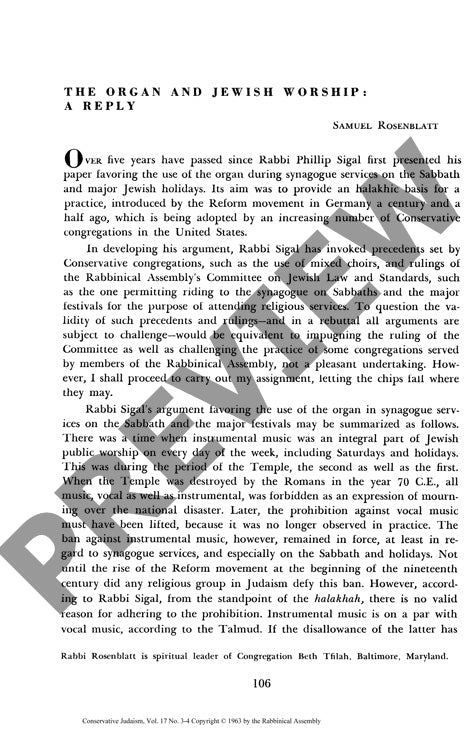The Organ and Jewish Worship a Reply
Couldn't load pickup availability
For over eighteen centuries, Jewish law has prohibited instrumental music during Sabbath services, yet Conservative Judaism's introduction of organ music remains deeply contested. Rabbi Phillip Sigal's halakhic defense of organ use fundamentally misinterprets crucial Talmudic and rabbinic sources, particularly regarding the post-Temple prohibition against instrumental music. Through detailed analysis of primary halakhic texts, including Babylonian Talmud passages (Gittin 7a, Sukkah 50b), Maimonides' codifications, and rabbinic responsa, this rebuttal exposes critical flaws in Sigal's reasoning. His argument incorrectly equates vocal and instrumental music restrictions while inappropriately extending Temple exemptions (ein shvut bamikdash) to modern synagogue practice. Historical evidence confirms that synagogues never possessed the special immunities of the Jerusalem Temple, and organ introduction largely stemmed from conscious imitation of Christian worship practices (chukkat hagoyim). The analysis further dismantles Sigal's analogies to other Conservative practices and challenges the validity of his cited precedents. These findings definitively establish that organ use during Sabbath services violates established Jewish law (shvut), lacking any legitimate halakhic foundation and undermining centuries of consistent tradition.

More Information
-
Physical Description
-
Publication Information
Published 1963
ISBN
-
Publication Credits
Matt Rosenblatt

